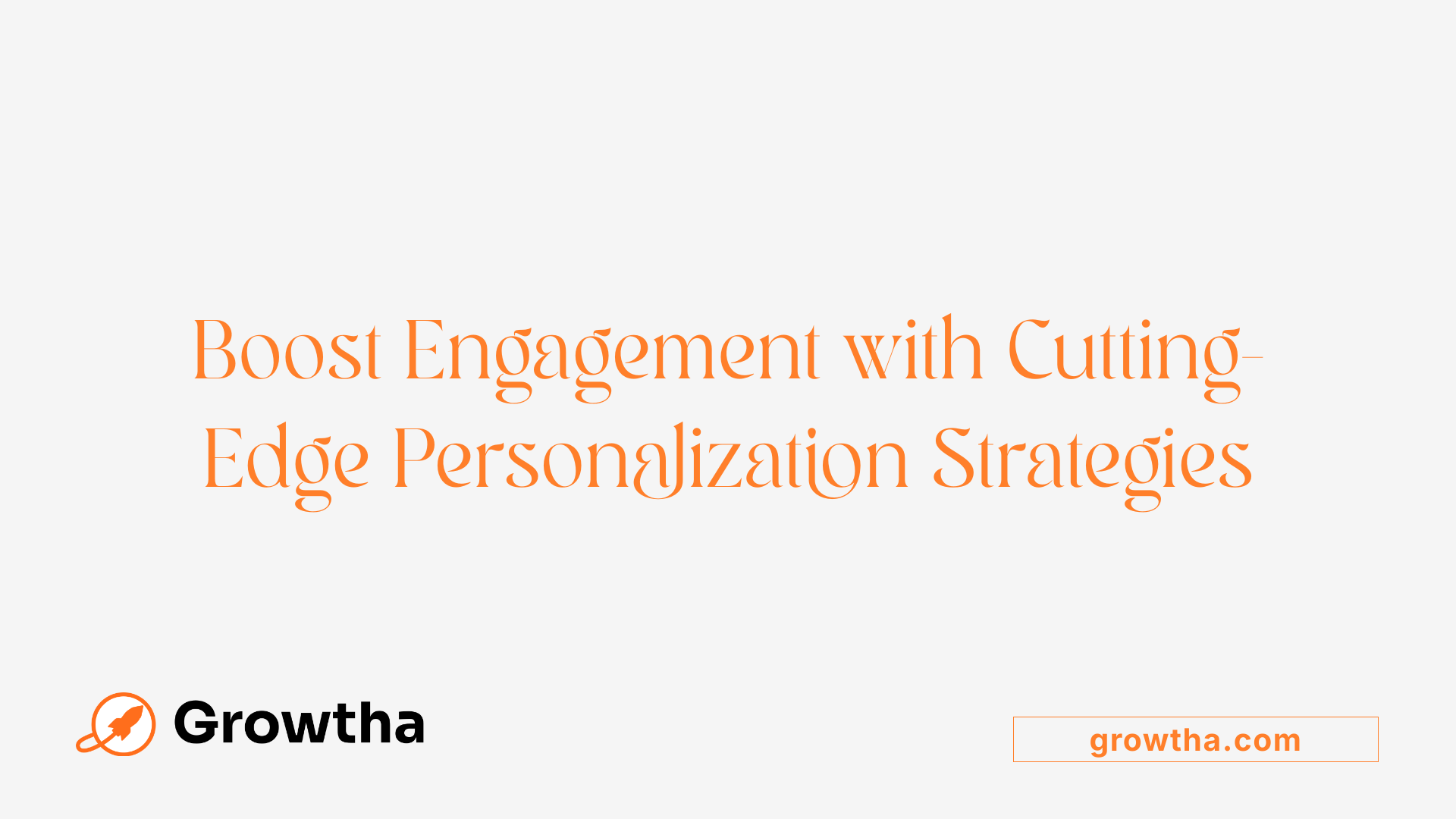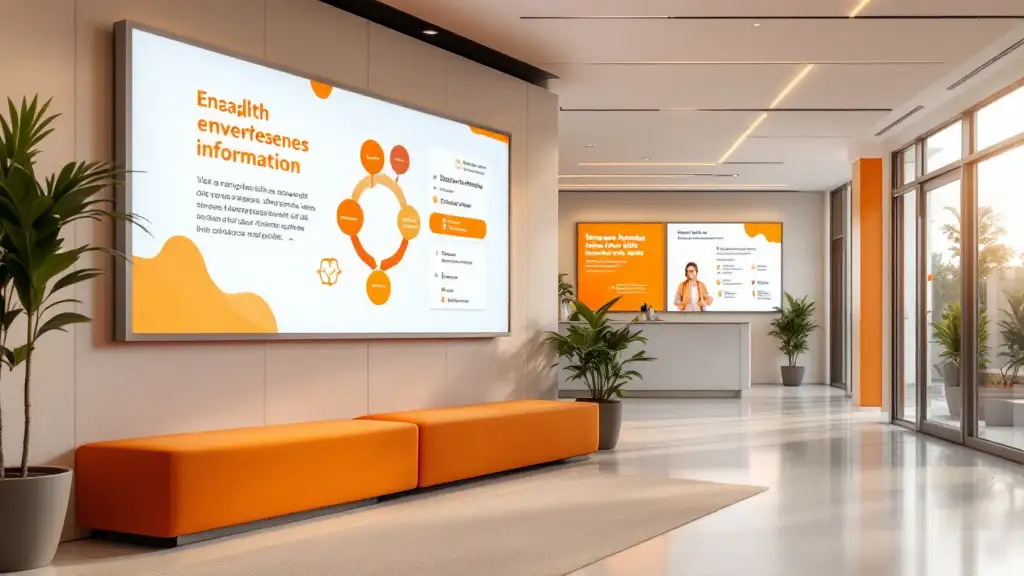Using Data to Personalize Medical Email Marketing
Transforming Healthcare Engagement with Data-Driven Personalization


Using Data to Personalize Medical Email Marketing
Unlocking the Power of Data in Medical Email Marketing
In today's digital health landscape, personalized email marketing is revolutionizing how providers communicate with patients and healthcare professionals. By leveraging patient data, healthcare organizations can craft targeted, relevant messages that foster trust, improve health outcomes, and boost engagement. This article explores how data informs personalized strategies, compliance considerations, innovative tools, and real-world successes, offering a comprehensive roadmap for effective healthcare email marketing.
The Fundamentals of Personalization in Healthcare Email Marketing

What is personalization in healthcare email marketing?
Personalization in healthcare email marketing involves creating messages tailored to an individual patient's health needs, interests, and preferences. Instead of generic content, these emails are crafted to resonate personally, addressing specific concerns or health conditions of patients. This approach helps foster trust, making patients feel understood and valued.
Why is customizing messages to patient needs so important?
Customizing messages enhances engagement and responsiveness. For example, providing diabetes management tips directly to diabetic patients makes the content relevant and actionable. When patients receive information that aligns with their current health concerns or medical history, they are more likely to open, read, and act on the messages. This increased relevance improves patient experience and encourages proactive health behaviors.
How does patient data, such as medical history and preferences, contribute?
Patient data serves as the foundation for effective personalization. Medical history, recent visits, medications, and health goals inform the content of each email. For instance, if a patient has a history of hypertension, targeted messaging about blood pressure control is highly relevant. Collecting accurate data and maintaining security are essential; it allows marketers to segment patients and craft precise messages that meet individual needs. Leveraging data not only improves engagement but also optimizes health outcomes by delivering timely, relevant information.
How does segmentation enhance targeting in healthcare email campaigns?
Segmentation plays a crucial role by dividing the patient list into groups based on shared characteristics such as age, medical conditions, or engagement levels. This allows healthcare providers to send more relevant emails, increasing the likelihood of positive responses.
| Segmentation Criteria | Example | Impact on Engagement |
|---|---|---|
| Demographics | Age, gender | Tailored health tips, appointment reminders |
| Medical history | Diabetes, hypertension | Condition-specific education |
| Behaviors | Past appointment attendance | Re-engagement campaigns |
| Psychographics | Health attitudes | Motivational messages |
Using sophisticated analytics and models like acceptance and perceived control, providers can further personalize content by considering patients' psychological readiness and attitudes towards health issues.
Final thoughts
Personalization in healthcare email marketing is essential for meaningful engagement. By utilizing accurate patient data and segmentation strategies, healthcare organizations can deliver relevant, empathetic messages that improve health outcomes and patient satisfaction. Investing in advanced tools and maintaining compliance with privacy regulations ensures these efforts are effective, secure, and trusted.
Enhancing Engagement through Advanced Personalization Techniques

How can healthcare providers improve email engagement through personalization?
Healthcare providers can significantly boost email engagement by adopting advanced personalization techniques that focus on the unique needs and preferences of each patient. This process begins with collecting accurate patient data, including demographics, health conditions, and past interactions, which serve as the foundation for targeted messaging.
Segmentation plays a crucial role; by dividing email lists based on factors like age, medical history, or behavioral patterns, providers can deliver content that resonates more deeply. For example, diabetic patients might receive tailored tips on managing blood sugar levels, while new parents could get guidance on pediatric vaccinations.
Predictive analytics further refines personalization by analyzing historical data to forecast future needs or behaviors. This allows providers to send proactive messages, such as appointment reminders before scheduled dates or health alerts based on recent health issues.
Utilizing multiple communication channels enhances the effectiveness of personalized outreach. Combining email with social media, mobile apps, and direct messaging ensures consistent contact across platforms, keeping patients engaged wherever they are most active.
Ongoing testing methods like A/B testing and patient feedback collection help optimize content. Adjusting subject lines, call-to-actions, and sending times based on data insights ensures messages are relevant and welcomed.
Security and trust are paramount in healthcare communication. Using encrypted emails that comply with HIPAA and including straightforward opt-out options fosters transparency and confidence.
Leveraging sophisticated tools like CRM systems, electronic health records (EHR), and marketing automation platforms enables healthcare organizations to streamline personalization efforts while maintaining compliance.
In summary, integrating data-driven strategies with multichannel delivery, continuous testing, and strict privacy measures results in higher open rates, greater patient adherence, and ultimately, better health outcomes. Personalized healthcare email engagement not only improves communication efficiency but also nurtures stronger relationships between providers and patients.
Tools and Technologies Powering Personalization
 Personalized healthcare email marketing relies heavily on advanced tools and innovative technologies that enable targeted, relevant, and secure communication.
Personalized healthcare email marketing relies heavily on advanced tools and innovative technologies that enable targeted, relevant, and secure communication.
CRM (Customer Relationship Management) systems are foundational, as they help healthcare providers organize and manage comprehensive patient data, including medical history, appointment records, and demographic information. Modern CRM platforms support segmentation and automation, allowing organizations to tailor messages based on individual patient needs.
Marketing automation platforms complement CRM systems by automating personalized emails, scheduling follow-ups, and triggering communications based on specific patient actions or timeframes. These tools often include built-in analytics, helping healthcare marketers monitor the effectiveness of campaigns and make data-driven adjustments.
Analytics tools such as Google Analytics, Facebook Insights, and specialized healthcare marketing solutions gather data on patient engagement and campaign performance. When integrated with AI and machine learning (ML), these analytics systems can analyze large datasets to identify patterns, predict patient behaviors, and customize content dynamically.
Artificial Intelligence and ML play crucial roles by analyzing complex healthcare data to uncover insights about patient preferences and behavior trends. This allows for hyper-personalized messaging, where content is tailored not just in terms of health needs but also timing and delivery channels.
In addition, natural language processing (NLP) enhances communication by enabling chatbots and automated responses that understand and respond to patient inquiries effectively, providing a more interactive and empathetic user experience.
Ensuring HIPAA compliance and data security is paramount. Tools like Paubox offer end-to-end encrypted email solutions that protect protected health information (PHI) while enabling marketing activities.
Overall, integrating CRM, automation, analytics, AI, and NLP creates a robust infrastructure that supports scalable, compliant, and personalized healthcare marketing campaigns. This technological synergy improves engagement, patient trust, and health outcomes while optimizing resource use.
Regulatory and Ethical Considerations in Data-Driven Health Marketing
What are the regulatory considerations, such as HIPAA, when using data-driven methods for healthcare email marketing?
In healthcare email marketing, compliance with regulations like HIPAA (Health Insurance Portability and Accountability Act) is critical to protect patient privacy and ensure legal operation. HIPAA sets strict standards for how protected health information (PHI) must be handled, especially in digital communications.
Organizations must obtain explicit consent from patients before including their PHI in email campaigns. This involves ensuring that any marketing emails containing sensitive data have been sent only after securing valid HIPAA authorization. Without this, any use of PHI could lead to legal penalties.
Employing HIPAA-compliant email platforms is essential. These platforms provide features such as end-to-end encryption, audit logging, and secure data storage. Encryption safeguards PHI during transmission, preventing unauthorized access.
Furthermore, healthcare providers should establish Business Associate Agreements (BAAs) with any third-party vendors involved in their email marketing efforts. A BAA formalizes the relationship and ensures that vendors adhere to HIPAA standards for privacy and security.
Training staff on HIPAA protocols for email communication helps prevent accidental breaches. Additionally, including clear unsubscribe options and managing patient opt-outs helps fulfill legal and ethical obligations.
Most importantly, PHI should only be included in emails when patients have provided explicit consent. General health tips or appointment reminders without sensitive data are often safer. In cases where PHI must be used, strict adherence to privacy rules and transparent communication about data usage are necessary.
Overall, maintaining rigorous data handling procedures, secure transmission methods, and consistent patient consent processes ensures ethical and legal compliance in data-driven healthcare email marketing, safeguarding patient trust and organizational integrity.
Real-World Case Studies Demonstrating Success
What are some case studies showcasing the success of data-driven healthcare email marketing?
Healthcare organizations have demonstrated how effective data-driven email marketing can be through several compelling examples.
Hackensack Meridian Health is a standout case. They implemented targeted email campaigns that achieved a 77% open rate and a 24% click-through rate. These results led to significant revenue growth and increased utilization of their services. The success stemmed from careful segmentation and personalized messaging aligned with patient needs.
Another notable example is the Mayo Clinic’s personalized cancer outreach program. By tailoring messages based on patient medical histories and preferences, they experienced nearly three times higher open rates and nine times higher click-through rates compared to industry averages. This underscores the impact of relevant, patient-specific content in engaging recipients effectively.
Providence Medical Group utilized specialty newsletters to connect with patients. Their campaigns achieved read rates of up to 38.7% and click-through rates exceeding 55%. Such high engagement levels highlight how segmentation and personalized content tailored to specific healthcare interests can foster patient involvement.
Beyond individual campaigns, community-focused initiatives like Cleveland Clinic’s personalized health journeys and Mount Sinai’s 'Healthy Community Challenge' exemplify how data-driven strategies extend beyond individual patient communication. These efforts enhance community outreach, promote health awareness, and improve overall health outcomes.
These case studies showcase the profound impact of targeted, personalized email marketing in healthcare, illustrating how leveraging patient data can boost engagement, foster trust, and contribute to better health results.
Metrics and Analytics: Measuring the Impact of Personalization
How can healthcare providers improve email engagement through personalization?
Healthcare providers can boost email engagement by implementing strategies that tailor messages specifically to each patient. Personalization involves using patient data such as their medical history, current health concerns, and preferences to craft relevant content.
Segmenting audiences based on age, health condition, or engagement behavior allows for more targeted messaging. For example, diabetic patients might receive specific tips on managing blood sugar, while new patients could get introductory information about services.
Using tools like CRM systems and electronic health record (EHR) data, providers can automate the delivery of personalized content, making communication more timely and meaningful. This approach not only increases open rates but also encourages actions like booking appointments or joining health webinars.
Technology such as predictive analytics and segmentation techniques ensures messages are relevant and personalized, which research shows can improve open rates by up to three times. Ensuring compliance with HIPAA by encrypting emails and including opt-out options builds trust and fosters patient engagement.
Furthermore, integrating multichannel outreach—including social media, SMS, and patient portals—maintains consistent communication tailored to patient preferences. Regular A/B testing of subject lines, content, and send times allows providers to refine their strategies continuously.
By focusing on data accuracy, empathetic messaging, and secure delivery, healthcare organizations can create personalized campaigns that improve health outcomes, enhance patient satisfaction, and increase overall campaign ROI.
What metrics demonstrate the success of personalized healthcare email campaigns?
Measuring the effectiveness of healthcare email marketing involves analyzing several key metrics. These include:
| Metric | Description | Typical Range/Insight |
|---|---|---|
| Open rates | Percentage of recipients who open the email | Average around 37%, with higher rates on weekends and special occasions |
| Click-through rates (CTR) | Percentage of recipients who click links within the email | Typically 1.87%, but can increase up to 5% with engaging content |
| Conversion rates | Actions taken after clicking, such as booking an appointment | Significantly higher when content is personalized |
| Bounce rates | Emails that failed to deliver | Usually around 2%, indicating targeted mailing lists |
| Unsubscribe rates | Percentage of recipients opting out | Very low at around 0.06%, reflecting relevant content |
Tools like Google Analytics and Facebook Insights provide further data on user interactions across digital platforms, helping to evaluate and refine campaigns. Google Analytics tracks behaviors on associated landing pages, while Facebook Insights reveals engagement levels for social media promotions.
How does analyzing data help refine healthcare marketing strategies?
Interpreting analytics data is crucial for optimizing healthcare email campaigns. For instance, if open rates drop, testing different subject lines or timing can identify more effective approaches. Similarly, understanding which content drives higher CTRs enables marketers to focus on producing more of what resonates.
Segment-specific insights allow customization of messaging for different patient groups, increasing relevance and engagement. Monitoring bounce rates and unsubscribes helps maintain list health, ensuring messages reach active, interested recipients.
By continuously analyzing performance metrics, healthcare providers can make data-driven decisions, adjusting content, frequency, and targeting strategies. This iterative process leads to improved engagement rates, better patient adherence, and higher ROI.
In summary, leveraging analytics tools to interpret email marketing data allows healthcare organizations to systematically enhance their personalization efforts, resulting in more meaningful patient interactions and improved health outcomes.
Integrating Personalization within Broader Healthcare Marketing Strategies
How can data be used to personalize medical email marketing strategies?
Data plays a crucial role in making healthcare email marketing more personalized and effective. By analyzing various patient data points—such as demographics, medical history, health interests, and behavioral patterns—healthcare providers can target messages that are highly relevant to each individual.
Segmentation is the first step, allowing organizations to divide their contact lists based on factors like age, condition, or previous interactions. Advanced analytics tools, AI, and customer relationship management (CRM) systems facilitate the creation of tailored content, such as specific health tips, appointment reminders, or diagnostic test suggestions that match each patient's needs.
HIPAA compliance remains a top priority. Providers must verify recipient identities and ensure all data is securely encrypted to safeguard protected health information (PHI). Including clear opt-out options respects patient privacy rights and legal regulations.
The benefits of this approach are clear. Personalization significantly boosts email open and click-through rates, which translates into higher return on investment (ROI) and better health outcomes. Patients are more engaged when messages address their individual circumstances.
Operationally, combining automation with human oversight helps maintain authenticity in communication. Automated workflows can deliver timely, relevant messages, while healthcare teams can add personalized touches to foster trust.
Overall, integrating detailed patient data into marketing efforts ensures that communication is not only compliant but also meaningful, enhancing patient loyalty and engagement while supporting broader healthcare objectives.
Harnessing Data for Better Healthcare Communication
The integration of data analytics, advanced tools, and compliance measures is transforming healthcare email marketing into a highly effective, personalized communication channel. By leveraging patient data responsibly, providers can craft tailored messages that increase engagement, foster trust, and improve health outcomes. Successful case studies demonstrate the tangible benefits of data-driven strategies, while continuous testing and analytics refinement ensure ongoing optimization. As healthcare marketing evolves, embracing personalization through data will remain essential for building stronger patient-provider relationships and advancing healthcare delivery in a competitive, digital-first environment.
References
- Delivering personalized experiences through healthcare marketing.
- Personalizing Email Marketing for Healthcare Providers
- Data-Driven Email Marketing Best Practices for Medical Practices in ...
- Healthcare Email Marketing Strategies to Boost Patient Engagement ...
- Healthcare Email Marketing: Best Practices & Examples for Medical ...
- Healthcare Email Marketing: Tips, Examples & Free Templates
- Personalized Patient Experiences Through Email Campaigns
- Email marketing personalization case study | Deloitte US







